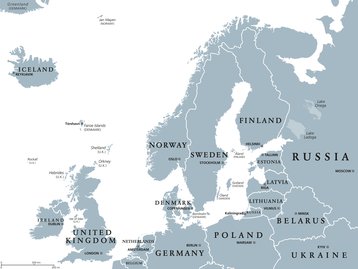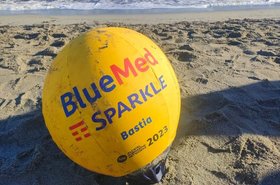Sweden has reported that a subsea cable running across the Baltic Sea has been damaged.
The cable in question connects Sweden to Estonia, and was damaged at the same time as Finland's gas pipeline and a Finland-Estonia cable. The Balticconnector gas pipeline was switched off after it began leaking from a hole. The data cable running along the same route was also damaged, but was redundant and the damage therefore did not affect services.
The Swedish cable has been "partially damaged," as opposed to a total cable break, and service was restored within just a few days. The location of the damage seems to be in Estonian territory, around 50 kilometers from the island of Hiiumaa, while the damage to the gas pipeline occurred in Finnish waters, despite both occurring simultaneously.
Finnish authorities are investigating the possibility that the damage was caused by sabotage. The Swedish Civil Defense Minister Carl-Oskar Bohlin conceded that the two incidents were simultaneous, but said it remains unclear what caused the damage.
The Swedish Defense Minister Pål Jonson says that there is currently a "heightened vigilance" in the Baltic Sea, and that Sweden's police, military, and coast guard are in discussions with Estonia about the matter.
“We see the issue of security for our critical infrastructure as a high priority, and take the current situation seriously,” said Jonson.
Estonian Defense Minister Hanno Pvejur said: "The scale of this failure was quite small and, as the operators also said, the failure was corrected. It needs to be clarified what exactly was the nature of the failure and whether it is also related to the Estonian-Finnish (telecommunications) cable and (gas) pipeline failure.”
Just a year prior, explosions - believed to be an act of sabotage - damaged the Nord Stream gas pipelines connecting Germany and Russia, though this case remains unsolved.
The Baltic Sea is a key location in the current context of the Russia-Ukraine war. Since the war began, Sweden has applied to become a member of NATO in order to protect itself from attack, and Finland became a member on April 2023, bringing NATO right up to the border of Russia.
The Balticconector pipeline, a 77-kilometer-long system, connects Finland and Estonia. It was primarily financed by the European Union for around €300m (£259m) and began transporting liquefied natural gas to Finland in 2022 to replace the supplies from Russia in the wake of its invasion of Ukraine.
NATO’s Secretary General Jens Stoltenberg has since issued a stark warning that it will mount a “determined” response if a deliberate attack is proven.
Subsea telecoms cables have historically been targeted in times of war to interrupt communications.
In 2022, the Guardian reported that Russian submarines were scoping out cables. Admiral Tony Radakin, head of the UK's armed forces said at the time that Moscow could "put at risk and potentially exploit the world’s real information system, which is undersea cables that go all around the world."







